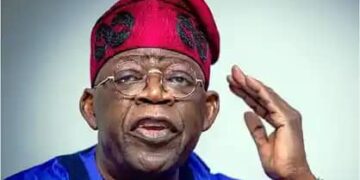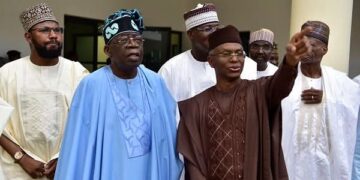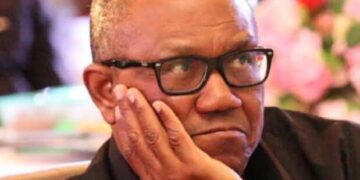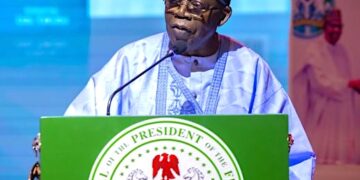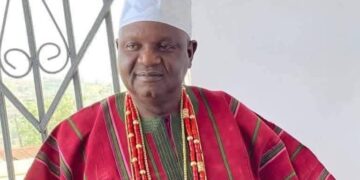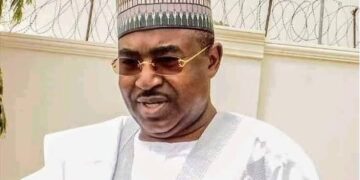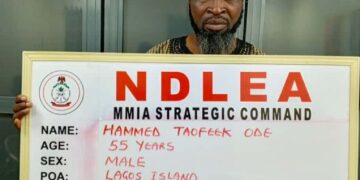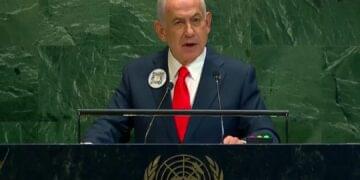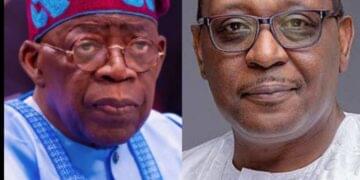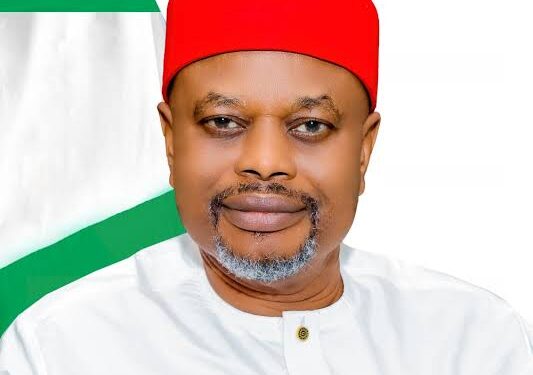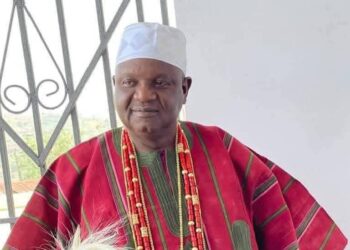By Hon Augustine Umogbai
The abrupt resignation of Geoffrey Uche Nnaji, the Minister of Innovation, Science, and Technology, on October 8, 2025, has sent shockwaves through Nigeria’s political landscape. Accused of forging academic certificates, including a purported degree from the prestigious University of Nigeria, Nsukka (UNN), Nnaji’s exit marks a humiliating end to his tenure in President Bola Tinubu’s cabinet.
This scandal, which first surfaced in July 2023 during his nomination, exposes deep cracks in the vetting mechanisms for high public office holders. Nigerians, already grappling with economic hardships and governance distrust, now demand answers: Who screened this man? What exactly does the Department of State Services (DSS) screening entail? And why has this forgery slipped through the cracks, embarrassing key institutions in the process?(premiumtimesng.com)
UNPACKING THE SCREENING PROCESS: THE SENATE’S ROLE AND THE DSS’s BLIND SPOTS.
At the heart of Nigeria’s ministerial appointment process lies a constitutional mandate under Section 147 of the 1999 Constitution (as amended), which requires the President to submit nominees to the Senate for confirmation. The Senate’s Committee on Appointments conducts public screenings, where nominees present their credentials, respond to questions, and defend their suitability for office. In Nnaji’s case, this occurred on August 1, 2023, as part of the first batch of 28 nominees forwarded by President Tinubu.
During this session, Nnaji submitted over 100 copies of a 10-page profile document, including certificates that are now under scrutiny for falsification. The Senate’s “bow and go” approach where nominees merely bow and exit without rigorous interrogation has long been criticized as perfunctory, more a rubber-stamp than a thorough probe.(premiumtimesng.comicirnigeria.org)
Complementing this is the DSS’s pre-screening role, a critical but opaque layer of security vetting. The DSS, Nigeria’s domestic intelligence agency, is tasked with background checks on nominees to assess their integrity, loyalty, and potential security risks. This involves verifying career histories, criminal records, financial dealings, and associations often in collaboration with agencies like the Economic and Financial Crimes Commission (EFCC). Nominees are typically required to visit DSS offices for biometric data collection and interviews, ensuring no red flags like forgery emerge before Senate confirmation. Yet, in Nnaji’s instance, these checks evidently failed. Allegations that UNN never issued him the claimed degree certificate suggest either gross negligence or deliberate oversight by the DSS, raising questions about the agency’s efficacy and possible political interference. If the DSS’s mandate is to safeguard national security through credible appointments, this lapse is not just embarrassing it’s a breach of public trust.
AN EMBARRASSMENT TO INSTITUTIONS AND ICONS
Nnaji’s forgery saga is a collective stain on multiple pillars of Nigerian governance and academia. For the alumni of the University of Nigeria, Nsukka one of Africa’s foremost institutions this is a profound betrayal. UNN’s reputation, built on rigorous scholarship and producing luminaries like Chinua Achebe, is now tarnished by association with a fabricated credential that the university itself has disavowed. How did a claimant to its honors evade detection for over two years, only to resign in disgrace?(premiumtimesng.com)
The National Assembly fares no better. As the constitutional gatekeepers, senators who screened and confirmed Nnaji bear direct responsibility for this oversight. Their process, often marred by partisanship and haste, allowed a nominee with questionable documents to assume a key portfolio in science and innovation a sector vital for Nigeria’s technological leapfrogging.
This isn’t an isolated incident; past scandals, from “bow and go” confirmations to unverified credentials, underscore a legislature more interested in political patronage than public accountability.
President Tinubu, who swore Nnaji in based on these same credentials, cannot escape scrutiny either. The buck stops at the executive, where nominations reflect the President’s judgment and advisory circle. Retaining Nnaji amid swirling allegations until resignation became inevitable smacks of damage control rather than proactive governance, eroding faith in the administration’s commitment to integrity.
THE IMPERATIVE FOR PROSECUTION: JUSTICE AS DETERRENCE
Resignation is merely the first step; true accountability demands prosecution. Under Nigeria’s Criminal Code Act (Sections 465-469), certificate forgery is a felony punishable by up to seven years imprisonment. Nnaji’s alleged submission of falsified documents to the Senate constitutes not just personal deceit but a fraud on the state, undermining meritocracy in public service. The EFCC must investigate thoroughly, tracing the origins of these “mushroom” degrees often peddled by unaccredited online mills or rogue institutions and hold Nnaji accountable in court. Anything less sends a signal that high office shields the guilty, perpetuating a culture of impunity that has long plagued Nigerian politics.
Prosecution isn’t vengeance; it’s deterrence, ensuring future nominees think twice before peddling lies.punchng.com
A CALL TO ACTION ; AUDIT ALL APPOINTEES AND CRUSH FAKE DEGREES
This scandal cannot be a footnote; it must catalyze reform. Nigerians urge an immediate, independent audit of credentials for all current government appointees from ministers to agency heads led by a joint panel of the EFCC, ICPC, and National Universities Commission (NUC). Every certificate must be verified against issuing institutions’ records, with digital block chain tracking introduced for future submissions to prevent tampering.
Transparency demands public disclosure of findings, barring no one from scrutiny, regardless of political affiliation.
Equally urgent is a nationwide clampdown on “mushroom” doctorate degrees and honorary titles that masquerade as qualifications. The NUC and Federal Ministry of Education should intensify raids on rogue operators, revoke unaccredited programs, and impose life bans on beneficiaries in public office. International partnerships with bodies like the World Higher Education Database could blacklist global forgery hubs, while public awareness campaigns educate on spotting fakes.
Nigeria’s youth, brimming with genuine talent, deserve a system where merit trumps manipulation not one where forged papers propel the unqualified to power.
In the end, Nnaji’s fall is a symptom of deeper rot, but it offers a chance for renewal. Let this be the catalyst for a Nigeria where credentials are sacred, screenings are sacred, and service is untainted by deceit. The people are watching and they demand no less.
The author; Umogbai is a public policy/Defence and security analyst. He holds a bachelor degree in Sociology, Diploma in music, postgraduate diploma in peace and conflict management, masters in international advocacy and development, master of philosophy in Defence and security studies and Currently studying for a PhD in Defence and security studies.



